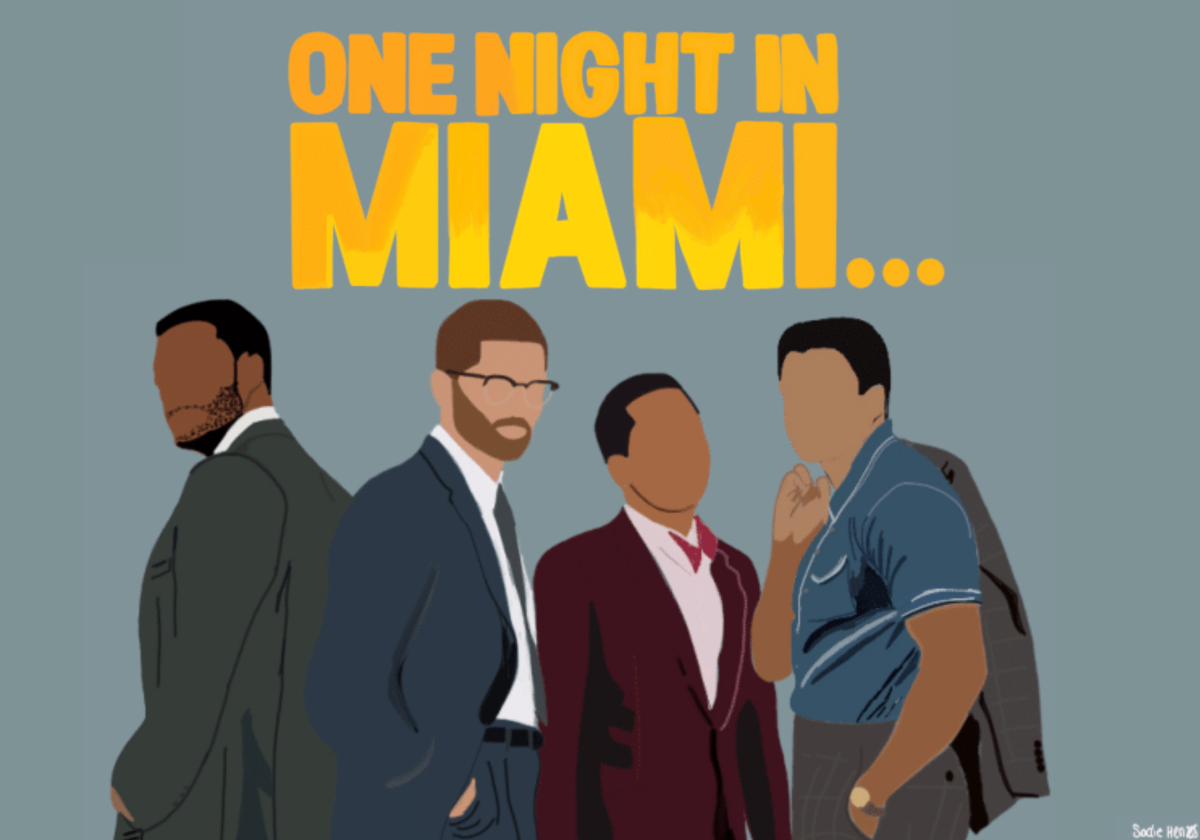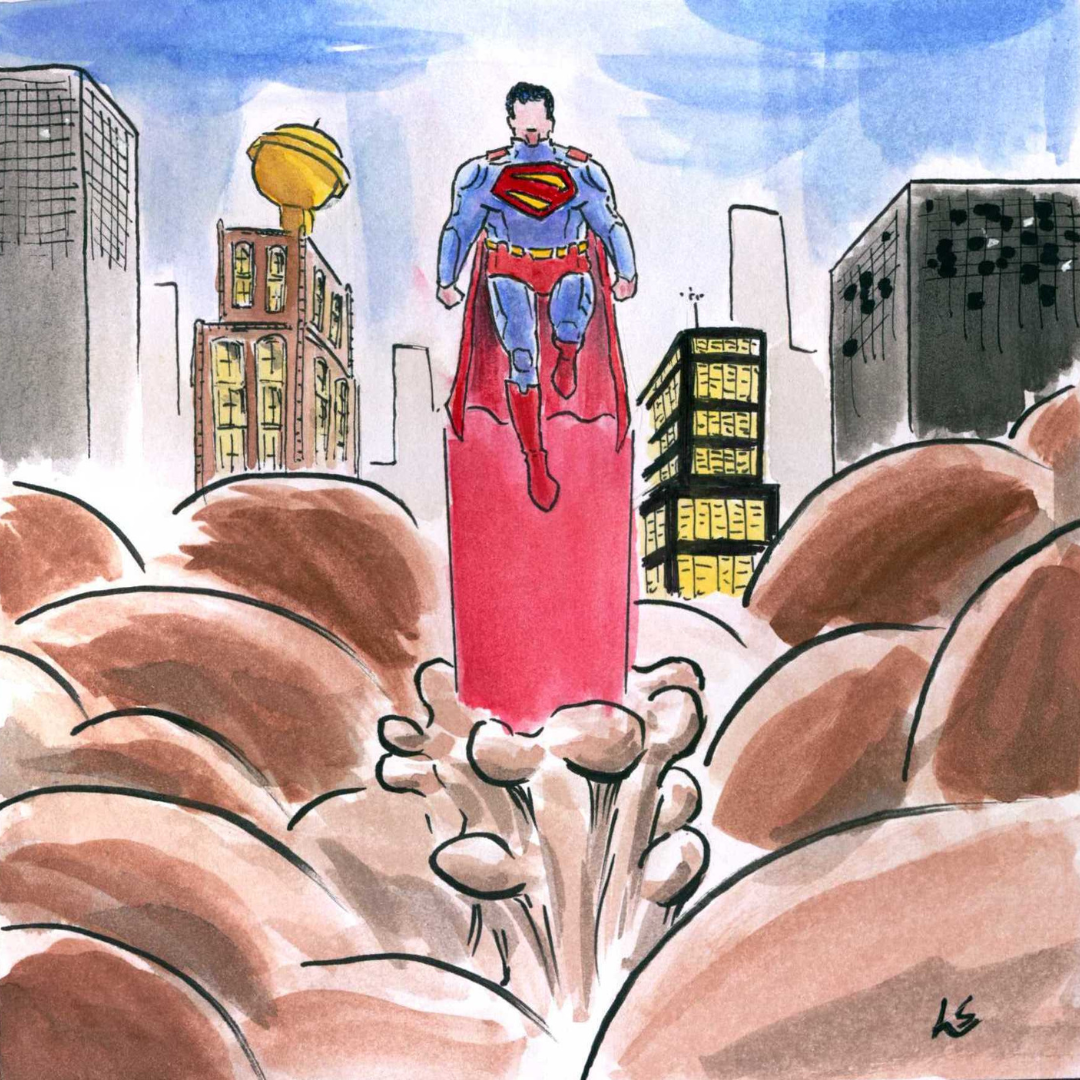“One Night in Miami” tells the fictional tale of an extraordinary meeting between Black icons Malcolm X, Muhammad Ali, Jim Brown and Sam Cooke on the night of Ali’s victory against Sonny Liston. Beautifully performed, it is a stunning directorial debut from Regina King herself, an actress with multiple awards.
Based on a screenplay by Kemp Powers, it is adapted from a 2013 stage play of the same name. The movie stars Kingsley Ben-Adir, Eli Goree, Aldis Hodge and Leslie Odom Jr. in the lead roles. It is currently available to stream on Amazon Prime.
The film begins in 1963 with a boxing match between Ali (still going by the name Cassius Clay) and Henry Cooper, with Ali nearly losing after a strong punch rings his bell. The main events of the narrative unfold one year later, with Cooke, Brown and Malcolm X all arriving in Miami to support their friend in his bout against heavyweight champion Liston. Once the match is over, the four men retreat to Malcom X’s hotel room to celebrate.
However, as the night progresses, tensions arise amongst them as their respective points of view on how to achieve Black liberation leads to heated arguments. Malcolm X is planning to leave the Nation of Islam to form his own group, just as he convinces Ali to publicly join it. While Cooke’s musical career struggles, Brown is transitioning from football to acting.
Though the story told is fictional, Powers’ script perfectly captures the personalities of these larger-than-life characters: Ali’s boisterous and charismatic confidence, Malcolm X’s unrelenting and inspiring sermonizing, Cooke’s independent attitude and Brown’s self-assured yet kind-hearted mien all shine through in their captivating inter actions. They are all right and yet all wrong at the same time, with who “wins” their debates largely up to personal preference.
In addition to their strengths, the script also brings out their faults and hypocrisies, making them all the more human and relatable. Cooke is talented and confident but does not want to rock the boat, Ali is brash but prone to impulse. Malcolm X is dedicated to his cause but also judgemental and insecure. Brown pursues what he wants but has trouble standing up to casual racism.
Each character’s introduction gives the audience an efficient exhibition of their core personality traits and the arcs their characters will travel over the course of the film. We first meet Brown as he returns home to Georgia, where he is greeted by Mr. Carlton, a family friend. Though they have a cordial conversation, Carlton soon shows his true colors by refusing to allow Brown into his house on account of his race, even tossing in a slur with the most casual tone possible. This confrontation sets up an idea that is brought up again later that night by Brown in a conversation with his fellow icons; racism expressed with a smile can be even more odious than unambiguous hate.
We meet Cooke as he performs in a club catering to upper-class white Amer icans, who treat him with contempt as his performance falters. Though his voice is on point, his lyrics are safe and nonthreatening, stifling him artistically.
After his near knock-out in the opening, Ali is next seen in a training session where he stands up to his cornermen regarding his decision to bring his controversial friends to his big fight.
Malcolm X is introduced coming home to his wife as one of his speeches plays on their television. The couple discusses his plans to break away from the Nation of Islam, as it will significantly impact them financially since the NOI pays for their property. He had tried to convince fellow NOI member Louis X to join them, but was turned down. However, Malcolm X is undeterred and instead focused on supporting his friend Ali on his big day.
With years of experience in television directing under her belt, King brings a fully realized cinematic voice to her material, which immerses viewers in a radically different time period where the daily reality of Black Americans was an uphill battle. Though Ali’s fights make up a small portion of the running time, King brings them to life with energetic and brutal choreography, with the fight against Liston building to a showstopping climax where the self-described “Greatest” finally ascends to the top of the world.
The majority of the film, though, is centered in one location: the motel where Malcolm X is staying. Luckily, King ensures that this setting never gets dull by infusing the conversations with dynamic movements from the actors as well as occasional flashbacks to other moments in their lives.
As well written as the characters are, they would not have been nearly as fun to watch if not for the talented performers who bring them to life. Hodge and Odom Jr give great performances, but special credit goes to Ben-Adir as Malcolm X and Goree as Ali. Having seen many real-life clips of these men, I felt as if they had stepped out of history and into this film. Ben-Adir’s Malcolm X brings a certain gravity and weight to almost every word he says, showing that who he was in public was the same man in private, while Goree’s Ali steals every scene he is in, arguably more so than Ben-Adir at times.
“One Night in Miami” is a magnificent tribute to some of the greatest icons in Black history. Its smart script and superb direction are beautifully matched with a roster of stars who give their all to doing justice by these important historical figures. Now more than ever, it is a timely, provocative film that is not afraid to explore difficult conversations and an unjust past.
Rating: 9 Hawks out of 10














































